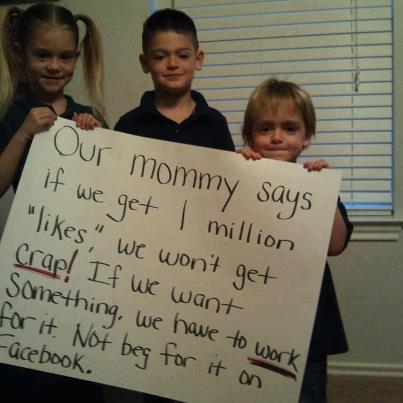 No matter how big or small our organizations are, we all want to be influential and create social change in this world. Sometimes we can’t help ourselves and feel compelled to measure some of our successes through vanity metrics such as FB Likes or Twitter followers. This can sometimes lead us down a dangerous path of constantly asking everyone under the sun to “like” our photos or political statements on our pages on Facebook or to follow us on Twitter with no real engagement behind it. I discussed this more in depth in my blog post last month that sparked a lot of debate in the nonprofit community “Is Social Media Making Organizations Lazy?”
No matter how big or small our organizations are, we all want to be influential and create social change in this world. Sometimes we can’t help ourselves and feel compelled to measure some of our successes through vanity metrics such as FB Likes or Twitter followers. This can sometimes lead us down a dangerous path of constantly asking everyone under the sun to “like” our photos or political statements on our pages on Facebook or to follow us on Twitter with no real engagement behind it. I discussed this more in depth in my blog post last month that sparked a lot of debate in the nonprofit community “Is Social Media Making Organizations Lazy?”
Today someone shared this awesome photo with me on FB (oh the irony). Look at these three cute kids  holding up a sign that says “Our mommy says that if we get 1 million likes, we won’t get crap! If we want something, we have to work for it. Not beg for it on Facebook.” This is spot on!
holding up a sign that says “Our mommy says that if we get 1 million likes, we won’t get crap! If we want something, we have to work for it. Not beg for it on Facebook.” This is spot on!
Right after I re-shared the photo on FB, a client of mine who we are working with on a web design project, said that they wanted advice on how their organization can be more influential across channels. Another client said, “Our Klout score is terrible. What can we do about it?”
Here was my advice to them and every organization that is looking to be more influential across multiple channels.
1. Influencer scores based on secret algorithms are bogus. They don’t provide real data on how “influential” an organization is. And even worse they set false expectations for organizations who are trying to get an accurate picture of how they are perceived online as well as how they can better engage their base and other target audiences.
2. Stop being obsessed with vanity metrics. Define what influence really means for your organization. This should differ from organization to organization as each one has different missions and priorities. Perhaps being influential is the ability to pick up the phone and call your most committed activists and get them to call their Members of Congress at a moments notice about an important legislative bill coming up for a vote. Or maybe you do such a great job cultivating your donors that when you send them an urgent online fundraising appeal with a matching gift, they happily pitch in, and you meet your goal almost every time. Or perhaps you have spent a lot of time building relationships with bloggers that cover issues in your space, so when you have a great story for them about your organization or the issues you work on, they return your calls or emails quickly and often cover the scoop. All of these examples are definitely considered “influential” in my book.
3. Develop a plan to engage with people across multiple channels. But more importantly be prepared to implement the plan and have staff buy-in. To succeed you will also need to be consistent, track what works, and tweak it when things aren't working the way you thought they would. Staff investment is key and they need to be 100% behind it and not say, "Oh that is not my department or my job."
4. Set realistic expectations. Sometimes my clients ask me, “How do I get to 1M followers on Twitter?” My first response is why? What do you plan on doing with 1M followers? And please don’t tell me it’s to ask them for money. Do you have the resources and staff capacity to engage with 1M followers over the long-term? Why is having 1M followers on Twitter so important to your organization? Would you rather have 10K followers who were committed to your issue or 1M who just randomly followed you and really did not care about your issue?
5. Test influencer platforms and see if they give you additional insight. A couple of weeks ago my colleague Danny Brown, who shares similar frustrations as I do with Klout and other “influencer” scoring apps, wrote this blog post about influencer platforms to watch in 2013 and suggested that organizations look at alternative platforms that measure things differently than Klout.



COMMENTS